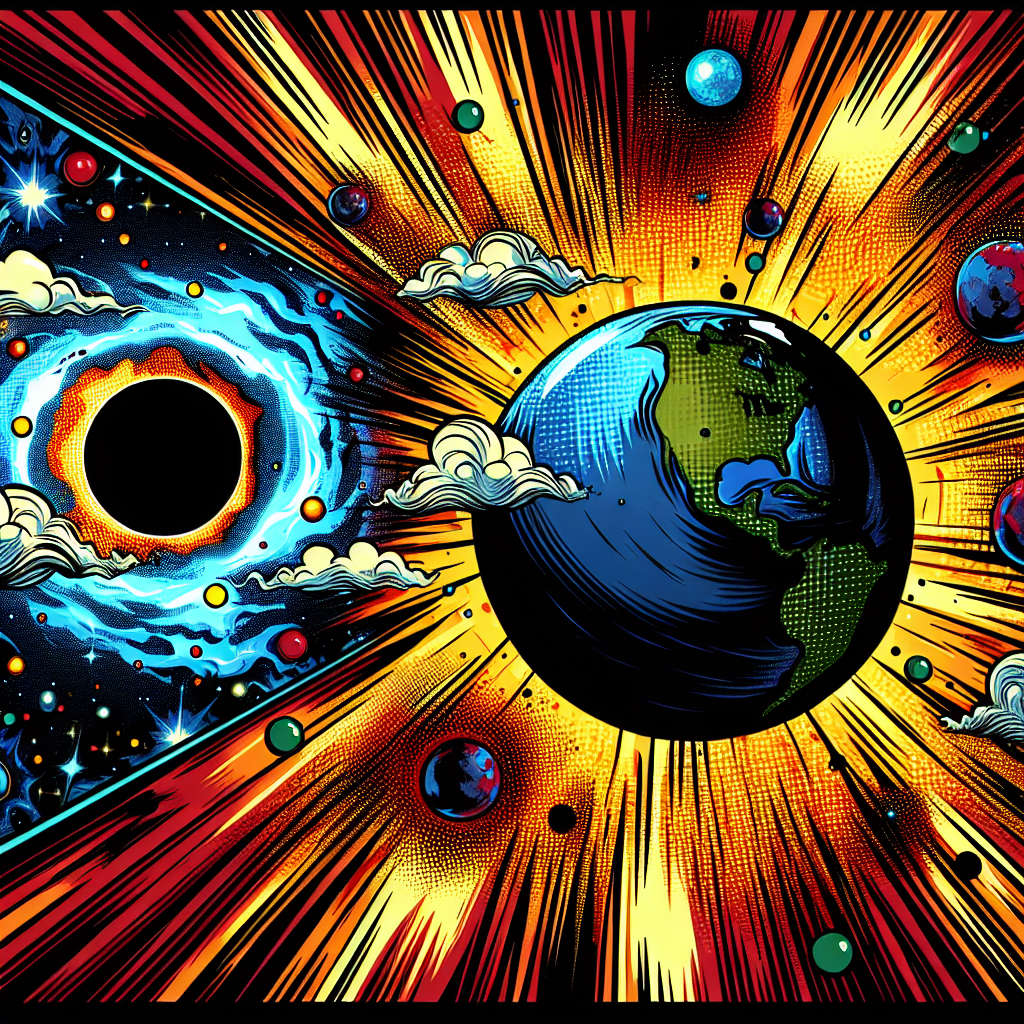A black hole passing near Earth would be an event of unprecedented proportions. The very fabric of spacetime would be severely distorted, causing a maelstrom of gravitational forces that would disrupt our daily lives. Imagine a cosmic game of gravitational tug-of-war, where the black hole is the dominant player, warping the fabric of spacetime to its whims.
Gravitational waves, like ripples on a pond, would emanate from the black hole, causing the Earth's rotation and orbit to wobble. The effects would be subtle at first, but as the black hole draws nearer, the distortions would intensify. Imagine holding a rubber sheet, representing spacetime, and placing a massive bowling ball, representing the black hole, on its surface. The sheet would sag and curve, illustrating how spacetime is warped by the black hole's gravity.
The closer the black hole approaches, the stronger its gravitational grip. Imagine being in a carnival funhouse, where the distorted mirrors and skewed reflections represent the warped spacetime. The black hole's gravity would create a region around itself known as the ergosphere, where the rotation of spacetime is so strong that it would drag everything, including light, towards it.
As the black hole draws nearer, the night sky would undergo a dramatic transformation. Stars and planets would appear distorted, as if viewed through a funhouse mirror. The black hole's strong gravity would bend and focus light, creating intense beams of radiation that could scorch the Earth's surface. Imagine a cosmic magnifying glass, focusing the sun's energy onto a tiny spot, incinerating everything in its path.
The disruptions would extend to the Earth's climate and geology. The intense gravitational forces would cause massive earthquakes, volcanic eruptions, and tsunamis. The very ground beneath our feet would shudder and tremble as the black hole's gravity tugs at the planet's crust. Imagine the Earth's crust as a delicate vase, cracked and shattered by the intense gravitational forces.
The effects on our daily lives would be catastrophic. Satellites in orbit would be torn from the sky, plunging our global communication networks into chaos. The distortions in spacetime would disrupt our most precise clocks, causing timekeeping to become impossible. Air travel would become hazardous, as the black hole's gravity would disrupt flight trajectories and navigation systems. Imagine flying on a plane, only to find that the gravitational forces have skewed your course, sending you hurtling towards an unforeseen destination.
As the black hole approaches, the Earth's tides would become more extreme, causing devastating coastal flooding and erosion. The black hole's gravity would stretch and compress the Earth's oceans, generating massive tidal waves that would reshape coastlines and inundate coastal cities. Imagine the oceans as a giant, churning washing machine, driven by the black hole's gravitational power.
The closest stars to the black hole would be affected as well. Imagine a celestial game of gravitational billiards, where the black hole is the cue ball, sending stars careening out of their orbits. The black hole's gravity would capture nearby stars, drawing them into a death spiral, where they would eventually be consumed. The night sky would be forever altered, as the black hole's presence would rewrite the celestial landscape.
If the black hole were to pass too close to the Earth, the consequences would be catastrophic. The planet would be torn apart by the intense gravitational forces, leaving nothing but a trail of debris in its wake. The very fabric of spacetime would be shattered, leaving the remnants of our planetary system in a state of utter chaos.
In the aftermath, the black hole would leave behind a region of spacetime forever altered, a gravitational scar that would echo through eternity. The cosmic landscape would be reshaped, as if a cosmic sculptor had reshaped the universe according to its whims. The passage of a black hole near Earth would be an event that would leave humanity in awe, and our planet forever changed.
In conclusion, the passage of a black hole near Earth would be an event that would defy human comprehension. It would be a cosmic spectacle of unprecedented proportions, a testament to the awe-inspiring power of gravitational forces that shape the universe.

Popular Space Questions
Find answers to the trending space questions being asked by our community on social media.
- How many galaxies are there in the universe?
- How many planets are in the Milky Way?
- How many planets are in our solar system?
- How big is the Earth?
- What are the planets in order?
- How far is Pluto from Earth?
- How big is the universe?
- How far is the Sun from Earth?
- What would happen if a pulsar's beam hit Earth?
- What if we found a way to manipulate gravity?